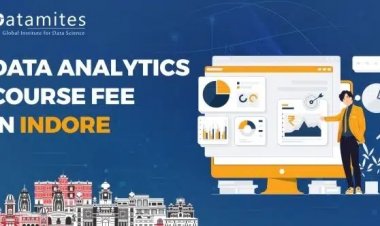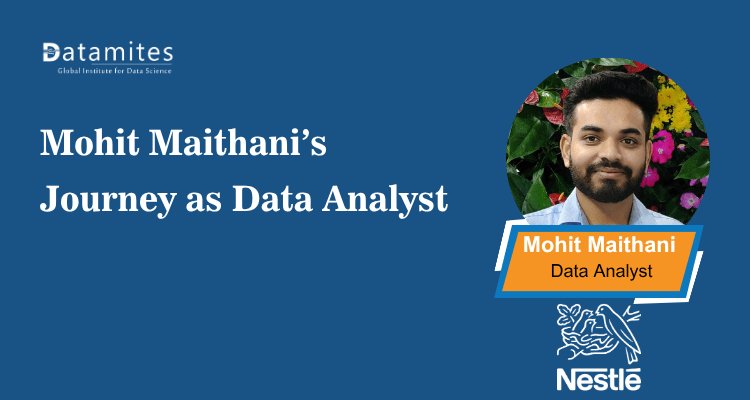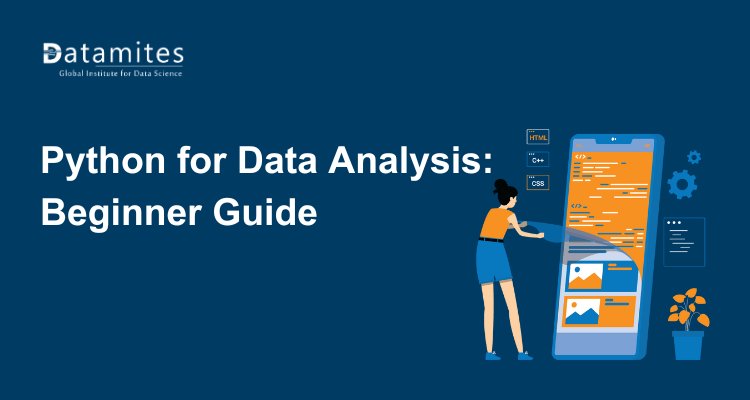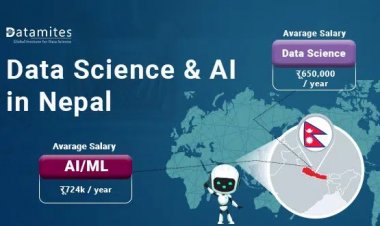Data Analytics Course for Working Professionals
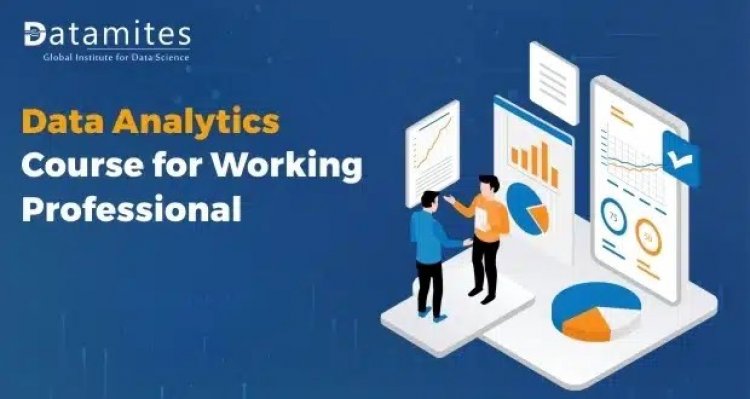
Data analytics is the process of examining large and complex data sets to extract useful insights and information that can help businesses and organizations make data-driven decisions. Data analytics has become an essential tool for working professionals across various industries, including finance, marketing, healthcare, and manufacturing. As businesses collect more data, they need skilled professionals who can interpret this data and provide actionable insights. Data analytics training is crucial for professionals to develop the necessary skills to interpret and provide actionable insights from the increasing amount of data collected by businesses.
To kickstart a career in data analytics, working professionals can enrol in a data analytics course to develop a strong foundation in statistics and programming. Such courses often cover programming languages such as Python and R, which are extensively used for data manipulation, visualization, and analysis through their powerful libraries. The data analytics course for working professionals also covers data visualization techniques such as charts, graphs, and dashboards that help in the clear communication of insights. Knowledge of machine learning algorithms covered in the course can further aid in predictive analytics, making it a comprehensive package for professionals seeking to upskill in data analytics.
There are several Online Data analytics Courses and certifications available that can help working professionals develop their skills in data analytics. Many of these programs are self-paced, allowing professionals to continue working while they learn. Data analytics is an essential tool for working professionals looking to make data-driven decisions. Developing a strong foundation in statistics, programming, and data visualization can help professionals effectively analyze and communicate insights from large and complex data sets.
How do working professionals benefit from Data Analytics?
Working professionals can benefit from data analytics in several ways:
- Better decision-making: By analyzing data, professionals can make more informed decisions based on evidence rather than assumptions or intuition. This can lead to better outcomes and improved business performance.
- Improved efficiency: Data analytics can help identify areas where processes can be streamlined and made more efficient. This can lead to cost savings, increased productivity, and better resource allocation.
- Competitive advantage: Organizations that use data analytics to their advantage are more likely to gain a competitive edge. By analyzing customer behaviour, market trends, and other data, professionals can identify opportunities for growth and innovation.
- Personal growth and career advancement: Developing skills in data analytics can help working professionals stand out in their careers. In a world where data-driven decision-making is becoming increasingly important, professionals who can analyze and communicate insights from data are in high demand.
- A better understanding of customers: Data analytics can help professionals gain a deeper understanding of customer behaviour and preferences. This can lead to more targeted marketing and sales efforts, better customer experiences, and increased customer loyalty.
Overall, data analytics can provide working professionals with valuable insights and information that can help them make better decisions, improve efficiency, and gain a competitive advantage. It can also help professionals advance their careers and better serve their customers.
Refer these below articles:
- Data Science vs. Big Data vs. Data Analytics – Know the Difference
- Data Science Vs Data Analytics
- Data Analytics in Logistics
Exploring the Role of a Data Analyst
A data analyst is responsible for collecting, processing, and analyzing data to uncover insights that can help organizations make data-driven decisions. The role of a data analyst typically involves the following tasks:
- Data collection: The data analyst works with various stakeholders to identify the data that is needed and collect it from different sources. This may involve using software tools to extract data from databases, spreadsheets, or other sources.
- Data cleaning and processing: The data analyst cleans and processes the data to ensure its accuracy, completeness, and consistency. This may involve removing duplicates, correcting errors, and transforming the data into a format that can be easily analyzed.
- Data analysis: The data analyst uses statistical methods and data visualization tools to analyze the data and uncover patterns, trends, and insights. This may involve identifying correlations, conducting regression analysis, or clustering data to identify groups.
- Report creation and presentation: The data analyst creates reports, dashboards, and visualizations that communicate the findings to stakeholders. This may involve creating charts, graphs, and tables to help stakeholders understand the insights and make data-driven decisions.
- Collaborating with other teams: The data analyst may work closely with other teams, such as marketing, finance, or operations, to identify data needs, interpret results, and make recommendations for improvements.
- Continuous improvement: The data analyst is responsible for identifying areas where data collection and analysis can be improved. This may involve identifying new data sources, improving data quality, or developing new analysis methods.
To be effective in this role, a data analyst should have a strong foundation in statistics, programming, and data visualization. They should also have excellent communication and collaboration skills to work effectively with other teams and stakeholders. Additionally, they should be able to think critically and creatively to identify insights and make recommendations for improvements.
Read these below articles:
- How much will be the Data Analytics Course Fees in Bangalore?
- How much will be the Data Analytics Course Fees in Chennai?
- How much will be the Data Analytics Course Fees in Pune?
Why Working Professionals Should Consider a Career in this High-Demand Field
There are several reasons why working professionals may consider pursuing a career in data analytics:
- High demand: The demand for professionals with data analytics skills is growing rapidly across a range of industries. Organizations are investing heavily in data analytics to gain insights into their customers, markets, and operations. This has created a need for professionals who can collect, process, and analyze data to generate actionable insights.
- Career growth: Pursuing a data analytics career can provide working professionals with opportunities for career growth and advancement. Data analytics skills are highly valued, and professionals who can demonstrate proficiency in this area are often in high demand for leadership roles in their organizations.
- Variety of industries: Data analytics is a skill set that can be applied to a wide range of industries. Whether you work in finance, healthcare, marketing, or any other industry, the ability to collect, process, and analyze data can help you make better decisions, improve processes, and gain a competitive edge.
- High earning potential: Professionals with data analytics skills are often well-compensated for their expertise. According to Glassdoor, the average salary for a data analyst in the United States is $76,000 per year, with some professionals earning significantly more based on their experience and expertise.
- Continuous learning: Pursuing a career in data analytics provides working professionals with the opportunity to engage in continuous learning. The field is constantly evolving, with new tools, techniques, and technologies emerging all the time. This means that professionals in this field have the opportunity to continuously develop their skills and stay up-to-date with the latest trends and best practices.
Overall, pursuing a career in data analytics can provide working professionals with a range of benefits, including career growth, high earning potential, and continuous learning opportunities. With the demand for data analytics skills on the rise, now is an excellent time for professionals to consider pursuing a career in this field. The salary of a data analyst in India ranges from INR 6,00,000 per year according to a Glassdoor report.
Also refer these articles:
- What are the Best IT Companies in Chennai?
- What are the Best IT Companies in Pune?
- What are the Top IT Companies in Bangalore?
Mastering the Craft of Data Analytics: Essential Skills for Success
Data analytics is a multidisciplinary field that requires a combination of technical, analytical, and communication skills. Some of the key skills required for a successful career in data analytics include:
- Statistical Analysis: A strong understanding of statistical concepts is essential for analyzing and interpreting data. This includes knowledge of probability theory, hypothesis testing, regression analysis, and data modeling.
- Data Mining: The ability to extract meaningful insights and patterns from large and complex datasets is a crucial data analysts skills. This involves using tools and techniques like clustering, association rules, decision trees, and neural networks.
- Data Visualization: The ability to present data in an effective and visually appealing manner is essential for communicating insights to stakeholders. Data visualization tools like Tableau, PowerBI, and D3.js can be used to create interactive and engaging dashboards, charts, and graphs.
- Programming: Proficiency in programming languages like Python, R, and SQL is essential for data analysts. This includes the ability to write efficient code, automate data processing tasks, and perform advanced data analysis using libraries like Pandas, NumPy, and SciPy.
- Communication: Effective communication skills are essential for conveying complex data concepts to non-technical stakeholders. This includes the ability to present insights in a clear and concise manner, tailor messages to different audiences, and collaborate effectively with team members.
- Business Acumen: A good understanding of business operations and goals is essential for data analysts to provide insights that are relevant and actionable. This involves understanding key performance indicators (KPIs), industry trends, and the competitive landscape.
- Critical Thinking: Data analysts must be able to think critically and creatively to identify solutions to complex problems. This involves analyzing data from different angles, considering alternative hypotheses, and evaluating the quality and reliability of data sources.
By mastering these key skills, data analysts can add value to organizations across industries, from finance and healthcare to marketing and technology.
Also read these articles:
- Why DataMites Institute for Data Analytics Course in Bangalore?
- Why DataMites Institute for Data Analytics Course in Chennai?
- Why DataMites for data analytics course in Pune?
The Value of Certifications for Working Professionals
Data analytics certifications are important for working professionals for several reasons:
- Demonstrating expertise: Certifications demonstrate to employers and clients that you have the skills and knowledge required to work effectively in data analytics. Data analytics Certifications can help you stand out from other candidates and increase your chances of getting hired or promoted.
- Keeping up with industry standards: The field of data analytics is constantly evolving, and certifications can help you stay up-to-date with the latest trends, tools, and techniques. Many certification programs require ongoing education or recertification to ensure that professionals are maintaining their skills and knowledge.
- Access to new job opportunities: Many employers require or prefer candidates with specific data analytics certifications. By obtaining a certification, you may qualify for job opportunities that were previously out of reach.
- Networking opportunities: Certification programs often provide opportunities to network with other professionals in the field. This can help you build relationships, learn from others, and identify new career opportunities.
- Professional development: Pursuing a certification can be a valuable professional development opportunity. The process of studying for and obtaining a certification can help you improve your skills, gain confidence, and enhance your career prospects.
Overall, data analytics certifications can be an important investment in your career. They can help you develop new skills, stay competitive in a rapidly changing industry, and demonstrate your expertise to employers and clients.
Certified Data Analyst Course
A Closer Look at DataMites Data Analytics Course
DataMites is a global provider of data analytics training and data analytics certification programs. They offer a comprehensive data analytics course that covers a range of topics, from data analysis and visualization to machine learning and predictive analytics. DataMites offers the best course in Data Analytics called Certified Data Analytics Course which provides comprehensive and in-depth learning from lead trainers. Here are some of the key features of the DataMites data analytics course:
- Curriculum: The DataMites data analytics course is designed by industry experts and covers all the essential skills required for a career in data analytics. The curriculum includes topics like data analysis with Python and R, data visualization with Tableau and PowerBI, machine learning with sci-kit-learn and TensorFlow, and predictive analytics with regression and time series analysis.
- Delivery: The DataMites data analytics course is delivered through a combination of online and offline modes, including live virtual classes, e-learning modules, and classroom training. This allows students to learn at their own pace and convenience.
- Faculty: The faculty at DataMites are experienced data analytics professionals with expertise in a range of industries, including healthcare, finance, and marketing. They provide hands-on training and real-world case studies to help students apply their learning to practical problems.
- Certification: DataMites offers certified data analyst course that is accredited by IABAC. The IABAC Certification is a testament to our commitment to providing high-quality data analytics training and ensuring industry-recognized standards are met.
- Placement support: DataMites provides placement support to students through a dedicated placement cell that helps them find job opportunities in the data analytics industry. They also provide career counseling and guidance to help students achieve their career goals.
- Flexibility– DataMites provides flexibility to working professionals by offering a range of training modes including offline and online classes for data analysts, live virtual classes, and e-learning modules. This allows students to choose a mode of training that suits their schedule and learning style and ensures that they can balance their professional and personal commitments while pursuing their data analytics education.
- Practical Approach- DataMites offers theoretical knowledge, practical experience through real-world case studies and projects, enabling students to apply the concepts they have learned in real-life situations. In addition, DataMites claims to have a high placement rate in leading companies in the data analytics industry and provides placement assistance to its students.
- Affordable fees- At DataMites, data analytics courses are available at reasonable fees, making them accessible to a diverse range of students. The institute offers multiple payment options, such as instalment plans, that enable students to manage their finances more effectively. The course fee range for Certified Data Analysts Training Course is INR 76,000.
Overall, the DataMites data analytics course is a comprehensive and practical training program that can help students develop the skills and knowledge required for a successful career in data analytics. Along with data analytics course datamites provides data science courses.
What is Histogram
Summary
Data analytics courses for working professionals are becoming increasingly important as data continues to play a vital role in business operations. These courses provide professionals with the opportunity to develop and enhance their skills in data analytics, allowing them to become valuable assets to their organizations. With a wide range of courses available, professionals can choose a program that meets their specific needs, whether it’s an online course that can be taken at their own pace or an in-person course that offers hands-on training. Additionally, these courses can help professionals stay current with industry trends and best practices and can lead to career advancement opportunities. Therefore, investing in a data analytics course can be a smart decision for working professionals looking to gain a competitive edge in the job market and contribute to the success of their organizations.
Simple Exploratory Data Analysis with Pandas
Exploratory Data Analysis





